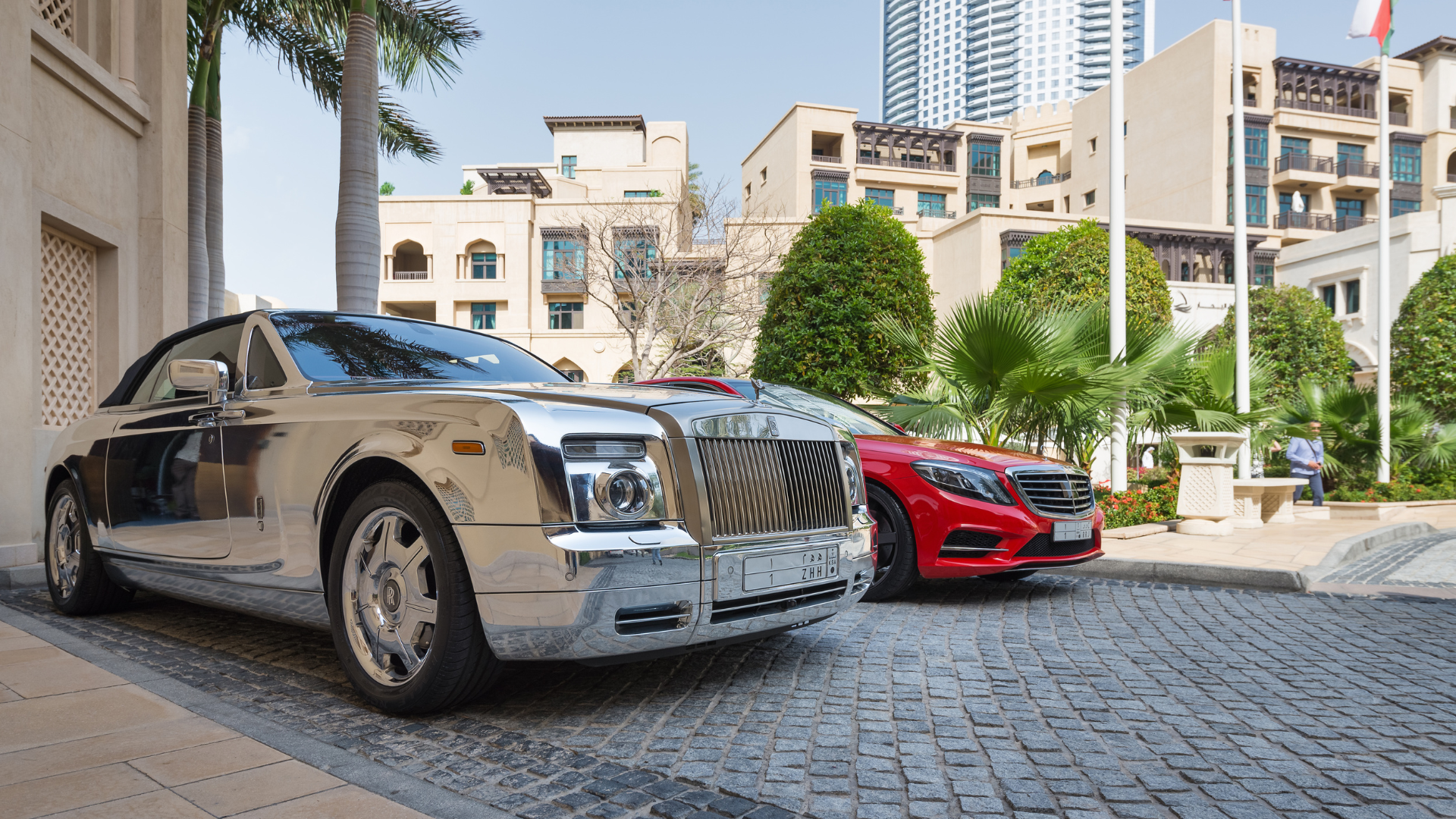What Drives Nurses to Spend Big on Luxury Cars
Shortly after I got my first nursing job in Chicago, I needed a car. I was immediately drawn to the brand-new, expensive ass $30,000 4-door Jeep Wrangler. Before I got swept away on daydreaming about cruising around in the coolest car around, I needed to do some research. After doing my homework on Kelly Blue Book, something stuck out to me.
The article read, “If you live in a city and want to look cute driving around, then don’t buy this car.” That got me thinking: “Did I want this car JUST to look cool driving around the city?” Turns out, it absolutely was. And in reality, half of my paycheck would be going toward the payments, and that would have been plain silly.
It was through this self-reflection, that led me down a worm hole. Wondering why I see so many nurses lean toward buying expensive cars? Even when it could put a serious dent in our finances.
Here’e my hot take: Nursing as a while is full of big egos, and ego can also make us make decisions that aren’t exactly in our best financial interest. So, in this post I’m going to cover 3 reasons that may have us reaching for keys to cars that stretch our wallets a little too thin.

1. Expensive Cars as Status Symbols
It’s no secret that society tends to see luxury items, like those flashy cars, as symbols of accomplishment? Like when you’ve spent years grinding it out at work, especially in a field like nursing, you want to show the world that all that effort really paid off. For many of us, that fancy ride isn’t just a way to get around; it becomes a way to say, “Look at me! I did it!”
Obviously, nursing is super important, but let’s be real—we don’t get the recognition we deserve. We work our assess off, but most people don’t even realize everything we do behind the scenes. This missing acknowledgment can definitely push some nurses to look for validation in other ways—like through material things. So, when a nurse rolls up in a fancy, high-end car, it can feel like a an acknowledgement for out hard work.
And honestly, who doesn’t want a little recognition for all their hard work? It’s only human! But considering that nursing isn’t exactly a profession that gets showered with public praise, it makes sense that some of us might look to our cars for that validation.
But here’s the thing: while treating ourselves to something nice feels great at the time, it’s worth thinking about whether these purchases are really fulfilling us or just feeding our need for extra recognition. What if we found other ways to celebrate our wins that don’t stretch our budgets too thin? That could open up possibilities—both for our wallets and our peace of mind. So let’s keep it real and make sure we’re driving towards things that genuinely make us happy, not just those that come with a hefty price tag!
2. You Deserve It
We go through years of school, endless studying, long shifts, and the emotional rollercoaster that comes with being a nurse. It’s only natural to want to treat yourself. I mean, we’ve been through a lot, right? This mindset often kicks in when we think, “After all I’ve done, I totally deserve this!” It’s like we’re justifying that splurge on an expensive car because we’ve earned it.
Nursing can be a high-pressure job, and it can really take a toll on us, both emotionally and physically. We spend so much time caring for others, that it’s easy to fall into the trap of thinking a fancy car is our way of taking care of ourselves. These purchases can kind of serve as a trophy acknowledging our dedication—like saying, “Yep, I made it through all that craziness, so I deserve to treat myself to something special!”

But here’s the thing—while it’s great to want to reward ourselves, we should also take a step back and think about how these purchases really fit into our lives. There are so many ways to show ourselves some love that don’t come with a major price tag. A day off to relax, a weekend getaway, or even just a nice dinner can feel just as rewarding without breaking the bank. So, let’s celebrate our hard work in ways that leave our wallets happy too.
3. Keeping Up With Others
You know how it goes—sometimes we get caught up in trying to keep up with the people around us. For nurses, that pressure can feel especially real. Maybe it’s a co-worker pulling into the parking lot in a new Tesla or a friend showing off their BMW on Instagram. It’s so easy to fall into that comparison trap.
And let’s be honest, it’s not just cars—it’s everything. The newest phone, the trendy clothes, the vacations. There’s this unspoken pressure to look like we’ve got it all together, and sometimes that means splurging on things we can’t really afford just to keep up appearances. When you know deep down, you know it might not be the best move for your budget.
Here’s the thing: it’s a cycle. The moment you buy that luxury car, someone else will roll in with something newer or fancier, and the pressure starts all over again. Instead of trying to match what others are doing, it’s about figuring out what really matters to you and staying true to that. Because at the end of the day, no car—or gadget, or designer bag—is worth the stress of struggling to make ends meet.
The Hidden Costs of Owning an Expensive Car
What many people don’t realize is that expensive cars come with expensive hidden costs that you don’t normally think about. These costs can add up fast so let’s break it down:

Pricey Repairs and Maintenance
Luxury cars aren’t just expensive to buy—they’re expensive to keep. Need a new part? Be prepared to shell it out because those high-end parts don’t come cheap. Even something as simple as a headlight can cost hundreds of dollars. And don’t even get me started on oil changes—some luxury cars require synthetic oil or special services that can easily run you $200 or more.
And if something major breaks, like the transmission? That repair bill could be in the thousands. Compare that to the relatively affordable upkeep of, say, a Honda or Toyota, and you start to see the difference.
Higher Insurance Costs
Expensive cars = expensive insurance. It’s not just about the price tag of the car itself; expensive vehicles usually have higher theft rates, higher cost repairs, and more advanced technology that can be tricky (and expensive) to fix. All of this means higher insurance premiums for you.
Premium Fuel
Think you’ll just roll up to the cheapest gas station and fill ’er up? Think again. Many high-end cars require premium fuel, which costs significantly more than regular. And if you don’t use premium gas, you could damage the engine or void your warranty.
Depreciation Hits Harder
All cars lose value over time, but luxury cars often depreciate faster than more affordable options. That fancy car you paid $80,000 for today might only be worth $50,000 in a few years. If you like to upgrade every few years, that depreciation can feel like throwing money out the window.
Tires
A lot of the time, expensive cars come with performance tires that are designed for speed, handling, and looks—not necessarily for durability. These tires can wear out faster and cost more to replace. You might also be stuck with a specific brand or size that isn’t cheap to find.
Tech That’s Expensive to Fix
That big touchscreen and those advanced driver-assistance features? Amazing—until something goes wrong. Luxury cars are packed with cutting-edge tech, which is great for convenience but bad for your wallet when it breaks. Repairs for these gadgets can be incredibly expensive and require special technicians.
How to Budget for a Car Based on Your Salary
When it comes to buying a car, the key is sticking to a budget that matches your income. A good rule of thumb is the 20/4/10 rule:
- 20% down payment: This reduces your loan amount and monthly payments.
- 4-year loan term: The shorter the loan, the less interest you’ll pay overall.
- 10% of your monthly income on car expenses: This includes the loan payment, insurance, fuel, and maintenance.
For example, if you earn $60,000 annually, your total car-related expenses shouldn’t be over $500 a month. It’s tempting to go over budget when you see those nice cars in the dealership, but remember that overspending on a car could mean less money for saving, investing, or other priorities. Basically, the more important things in life.
When It’s Okay to Splurge on an Expensive Car
Now don’t get me wrong, there’s nothing wrong with splurging on a high-end car—if the timing and circumstances are right. Here’s when it makes sense to treat yourself:
- You’re Debt-Free: If you don’t have high-interest debts like credit cards or student loans weighing you down.
- You’ve Built Wealth: You’re maxing out retirement accounts, have a solid emergency fund, and still have room to save.
- It’s a Business Expense: If you’re a business owner and the car doubles as a marketing tool or qualifies for tax benefits.
- It’s a Dream Worth Pursuing: If you’ve always wanted a particular car and can comfortably afford it, there’s no harm in indulging. Just make sure it’s not at the cost of your financial stability.
Final Thoughts on Nurses Buying Expensive Cars
It’s true what they say, “comparison is the thief of joy.” That’s why it’s crucial to self-reflect and figure out your motivations for purchasing an expensive car. Remember, cars are not a true symbol of wealth or achievement. When considering a luxury car, it’s important to prioritize your needs and financial security. Don’t let your car drive your financial future. You may feel you deserve that car, but what you truly deserve is to be financially secure.
Related Posts
- 4 Reasons to Ditch Your Drive to Work for Nurses
- Lifestyle Inflation: 10 Clear Signs You May Be a Victim
- 3 Ways to Increase Your Savings


Pingback: 3 Ways to Increase Your Savings | Greener Scrubs